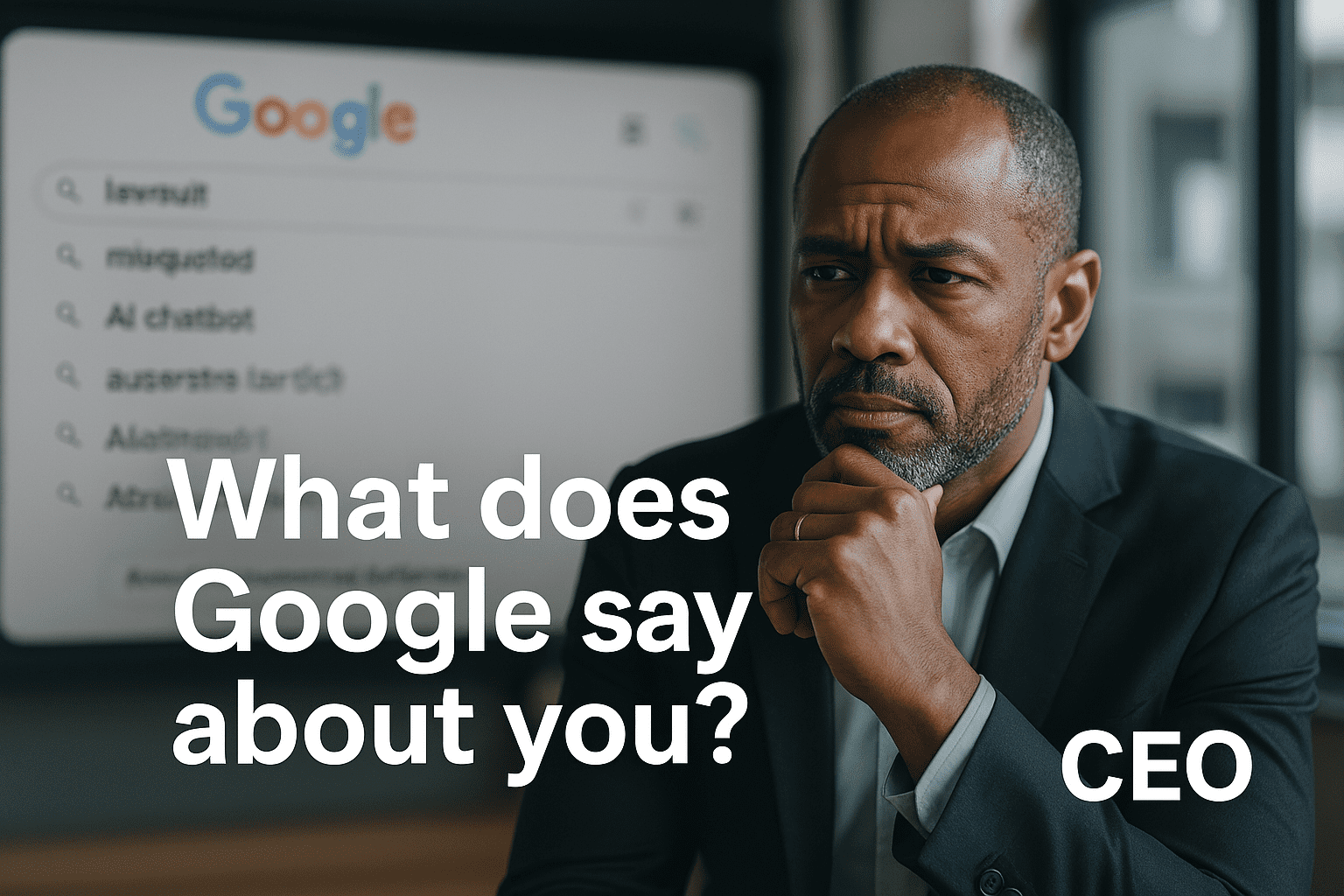Last Updated on August 2, 2023 by Steven W. Giovinco
Ten Ways to Gauge Your Online Reputation Management Problem
Here are some ways to determine if your online reputation needs to be repaired.
This is a way I use to gauge the severity of a reputation issue, how long it might take to improve, and the anticipated effort and resources necessary for the project.
Assign a number one to ten, depending on the severity of the issue. If the total reputation management score is high or over 50, proceed with the repair process.
1. Relative number of negative links
Conduct a Google search and count how many damaging links appear on the first page and second pages.
2. Strength of negative links
Determine how strong the articles are. Generally, the ones that Google values higher, such as major news sites, newspapers, government sites, and those with high traffic, are stronger and thus are more difficult to move down.
3. Position of negative links on a search page
Where do the links show up in search results? Those at the very top, such as in position one, are much harder to suppress.
4. Lack positive content
If there is very little other positive content, sites, or social media platforms, the more difficult it is to repair.
5. General public interest in the issue
Is the unfavorable information very newsworthy or of interest? This could make it harder to push down.
6. Lack of social media platforms
The building or repairing of a reputation is more accessible if there are already existing social media platforms; if there are none, the repair process takes much longer.
7. Lack of website development
Probably one of the best reputation assets is your website, but it makes recovery harder if you lack one.
8. Lack of search engine optimization
Are the site, social media platforms, and profiles fully optimized for search engines?
9. Social media or comments activity
If a story is retweeted or shared on social media, Google could rank the negative article higher in search results.
10. Number and strength of negative comments
Negative comments on blogs can be especially damaging.
Below is a sample that I used for a recent client.
Sample Reputation Analysis
| Reputation Area | Severity Score (1=positive; 10=negative) | Overall Sentiment | |
| 1 | The relative number of negative links (higher number is worse) | 9 | Negative |
| 2 | Strength of negative links | 10 | Negative |
| 3 | Position of negative links on search page | 10 | Negative |
| 4 | Lack positive content | 8 | Negative |
| 5 | General public interest in the issue | 8 | Negative |
| 6 | Lack of social media platforms (higher number is worse) | 8 | Negative |
| 7 | Lack of website development | 9 | Negative |
| 8 | Lack of search engine optimization | 9 | Negative |
| 9 | Social media or comments activity | 8 | Negative |
| 10 | Number and strength of negative comments | 7 | Negative |
| TOTAL REPUTATION MANAGEMENT SCORE (out of 100; the higher number is worse; for a score above 50, the repair is strongly recommended) | 86 | Negative |





2 thoughts on “How Bad is My Online Reputation? Ten Ways to Gauge the Problem”
It’s important to determine the online reputation damage before the repair process can start–this helps.
See more information on determining online reputation management repair assessment.